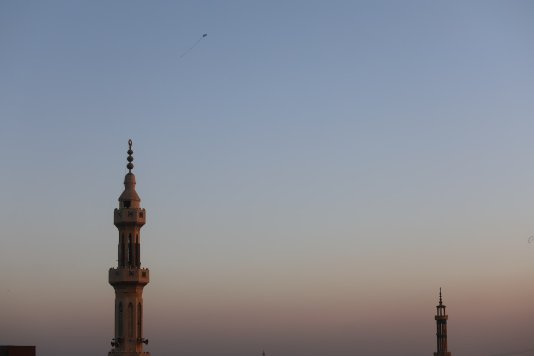- About
- Topics
- Story
- In-Depth
- Picks
- Opinion
- News
- Donate
- Signup for our newsletterOur Editors' Best Picks.Send
Read, Debate: Engage.
| topic: | Climate action |
|---|---|
| tags: | #COP27, #climate change, #religion, #climate action, #climate justice |
| located: | Egypt, Jordan |
| by: | James Walters, Hanane Benadi |
It has been recognised for some time that faith communities need to be part of the solution to the climate crisis.
While the Western experience of secularisation has led us to downplay religion’s significance in the contemporary world, it remains the case that over 80 percent of the world’s population follows a faith tradition, according to a 2017 study by Pew Research Center, and many of the regions most severely affected by global warming (such as Sub Saharan Africa and the Middle East) are also among the most religious.
If governments are to meet the ambitious targets for reduction of carbon emissions to which they commit themselves at the COP meetings, their populations will need to embrace a moral narrative of environmentalism that connects with their most deeply held values and beliefs - in most cases, their faith.
This necessary role for world religions was demonstrated at last year’s COP26 with a gathering of representatives from all the major faith traditions at the Vatican in the run up to the conference.
The 40 senior faith leaders, including the Pope, the Grand Imam of Al-Azhar and the Archbishop of Canterbury, called on governments to achieve net-zero carbon emissions as soon as possible and to limit the global average temperature rise to 1.5 degrees above pre-industrial levels.
But they also used a less technocratic language with more poetic phrases, such as "we have inherited a garden: we must not leave a desert to our children." This draws on the important religious perspective of moral responsibility to future generations and portrays the earth not simply as a material asset to be managed, but a garden - a creation - to be tended and loved.
These contrasting discourses - technocratic and theological - reflect the challenge that needs to be overcome if the potential of faith communities in addressing climate change is to be realised. We can’t simply think about religious leaders and their peoples instrumentally as social capital and moral authority to be leveraged in addressing a problem that is exclusively framed and narrated (not to mention principally caused by) the West.
Information about climate change is not only produced by the West, but also mediated and circulated globally by mostly western scientists, journalists, policy makers, and NGOs, and is therefore closely tethered to the logics of western modernity that elevate secular, rational and scientific knowledge above ethics, culture and religion.
Consequently, dominant climate change discourses tend to run up against their own limits when they travel to societies that operate under markedly different logics and different political and economic realities.
Our research among Muslim and Christian communities in Egypt and Jordan has shown how, while remote religious leaders may sign up to interfaith declarations framed predominantly in such technocratic language, the vast majority of ordinary believers in these countries articulate their lived experience of water shortages and extreme weather events in religious terminology.
They also interpret the processes of environmental degradation through a far more overtly moral lens.
Even the Grand Imam of Al-Azhar, in his address last year to the Third International Scientific Conference on Environment and Sustainable Development, described climate change not only as a biophysical phenomenon, but also as the latest manifestation of centuries of moral decay and domination of nature that went hand in hand with the technological advances that fuelled western progress.
Contrary to the hegemonic understanding of climate change as a sudden and unexpected rupture, he framed the current moment as a religious ordeal that requires each one of us to respond to God rather than to nature.
"Dominant climate change discourses tend to run up against their own limits when they travel to societies that operate under markedly different logics and different political and economic realities."
While God and religious ethics are marginalised within global climate change discourses, they seem to play a very important role in people’s perceptions and responses to climate change in the Middle East and many other more religiously-oriented parts of the world.
Scientific research and analysis must clearly underpin decision making and governmental action at events such as the upcoming COP27 at Sharm el Sheikh. But if we take the role of civil society seriously, and recognise the equal importance of morality and shared story in bringing about the behavioural changes we need, then we have to stop thinking that religious believers will always dance to a secular tune.
We must bridge the gap between local perceptions and global models and discourses of climate change by paying attention to the ways in which those on the front line of the climate crisis may be describing their experience.
Frequently, we find that God cannot be written out of the picture.
Professor James Walters and Dr Hanane Benadi, academics at LSE’s Religion and Global Society Unit, are currently researching the role of inter-faith dialogue in resolving modern global challenges in a project grant funded by Templeton Religion Trust.
Image by Omar Elsharawy.
